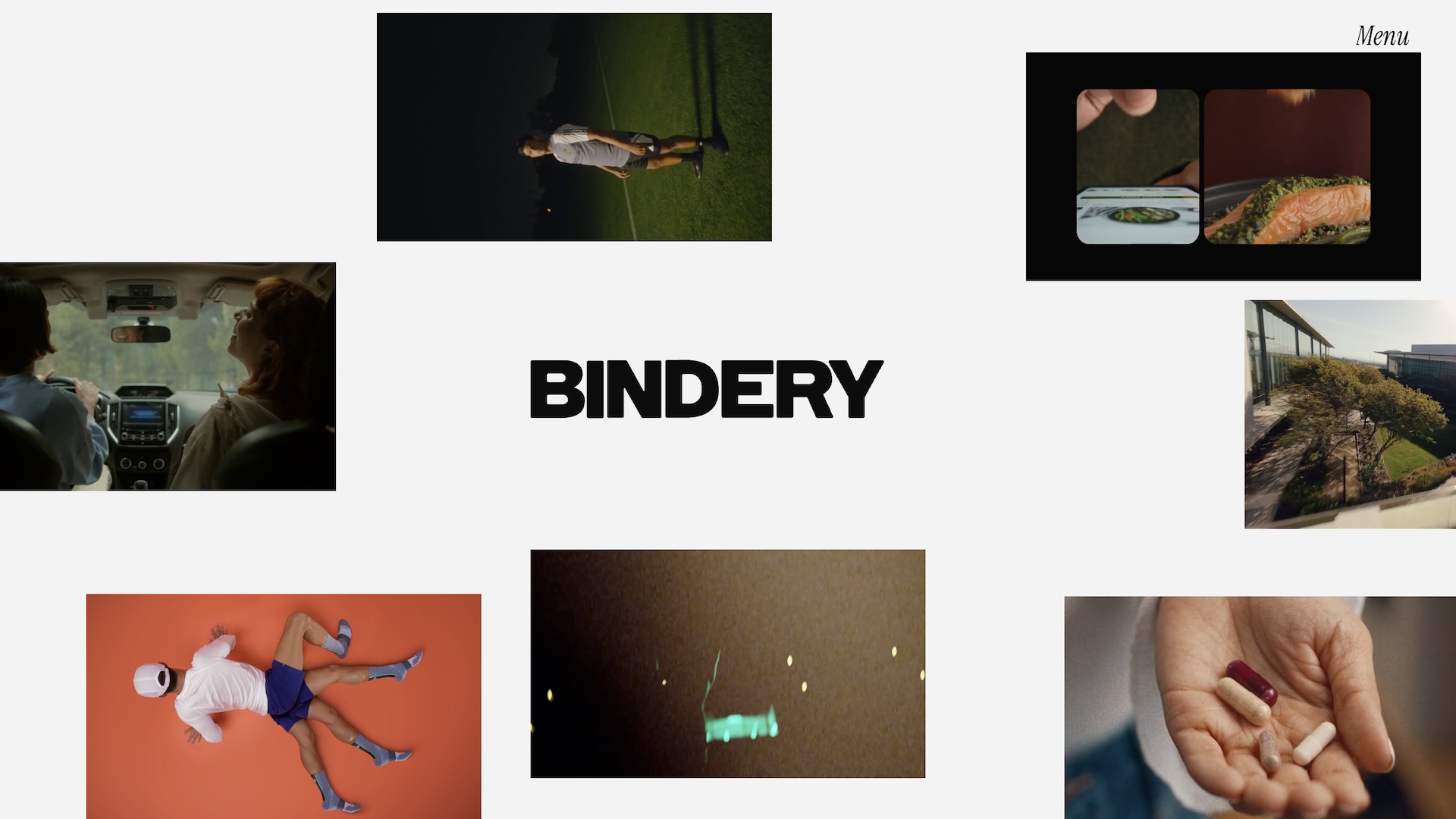How artists can deal with illness
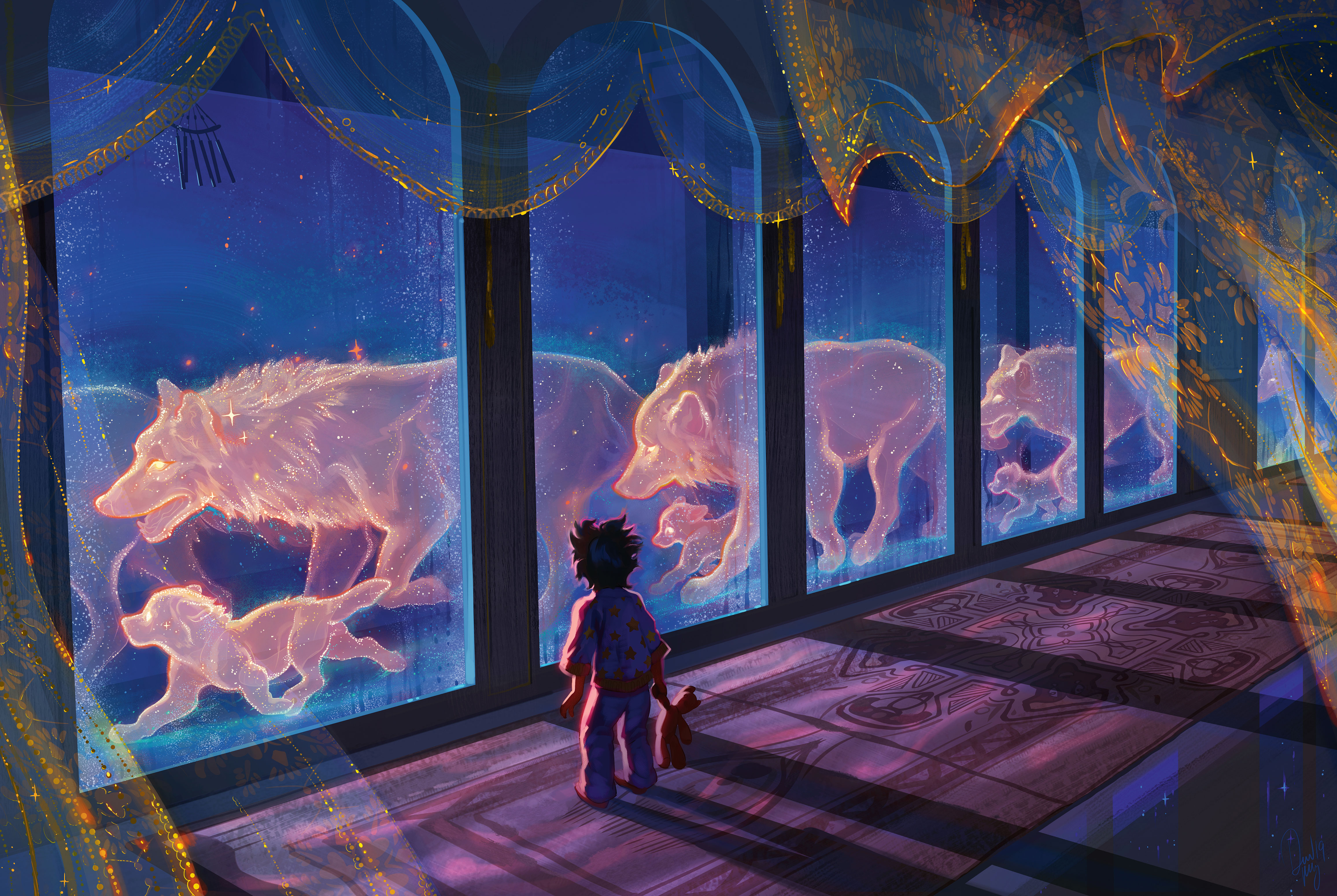
Daily design news, reviews, how-tos and more, as picked by the editors.
You are now subscribed
Your newsletter sign-up was successful
Want to add more newsletters?

Five times a week
CreativeBloq
Your daily dose of creative inspiration: unmissable art, design and tech news, reviews, expert commentary and buying advice.

Once a week
By Design
The design newsletter from Creative Bloq, bringing you the latest news and inspiration from the worlds of graphic design, branding, typography and more.

Once a week
State of the Art
Our digital art newsletter is your go-to source for the latest news, trends, and inspiration from the worlds of art, illustration, 3D modelling, game design, animation, and beyond.

Seasonal (around events)
Brand Impact Awards
Make an impression. Sign up to learn more about this prestigious award scheme, which celebrates the best of branding.
There’s no sugar-coating it: illness sucks, and can dramatically affect your ability to create art. But it doesn’t always make it impossible. In this piece, we look at how various artists have overcome both physical and mental ill health in order to create art, as well as acknowledging that sometimes, you have to stop creating for a while.
We also asked our artists for their best tips on how to deal with being unwell, which are below (skip to the tips here).
If you're after more art-creation specific advice, then don't miss our piece on the best how to draw tutorials, or our roundup of the best Photoshop tutorials.
Dealing with chronic illness
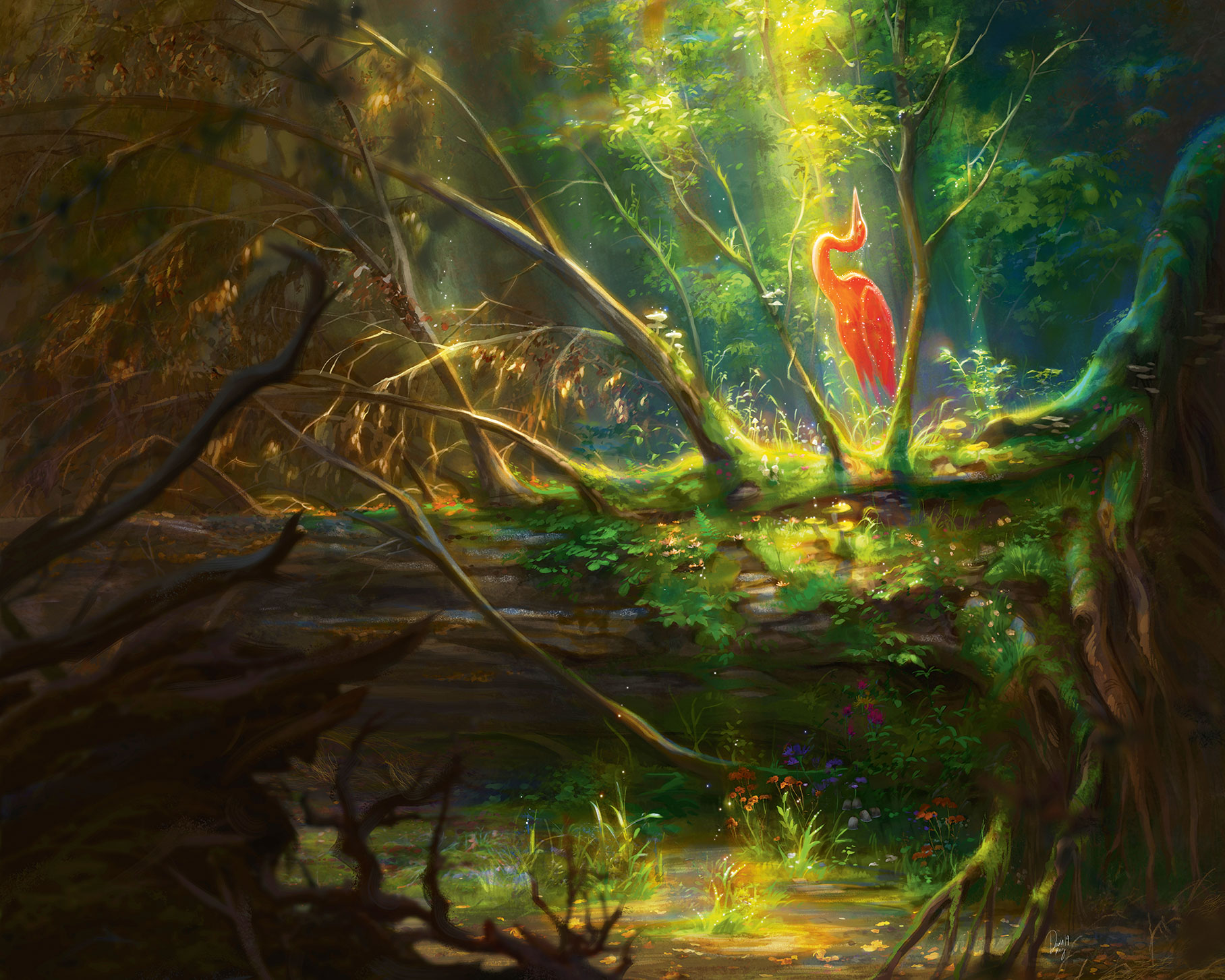
Devin Kurtz, aka TamberElla, works as an illustrator and background painter at animation production studio Rough Draft in California, despite having suffered from a chronic illness called CVS (cyclic vomiting syndrome) since she was six. “Luckily, I’ve improved a lot over the past five years,” she says. “I hit a low point around 17, and have since prioritised sleep, healthy food and listening to my body. I have good medication, a good specialist and know when I need to get to hospital, so some of the fear element is gone.”
Making art remains tough, though. “My condition tends to express itself when I’m under a lot of stress, so all-nighters and pushing myself beyond my limits are out of bounds. To get any personal work done outside of my job, I have to really prioritise the time I feel ‘well’, and use it in a productive way.”
It also influences the kind of art she produces. “I think it’s helped me avoid some of the traps people fall into: of feeling they should be creating a certain type of art, rather than what they want to do,” she says. “I make art that makes me happy, full stop.”
And her advice to others suffering illness is simple: “Remember that your value as an artist is in no way connected to your productivity. We’re surrounded by influences telling us to ‘put in 110 per cent’, push our limits and encouraging other damaging habits. But remember, you’re taking care of your body not just for the ‘you’ of today, but for the ‘you’ of the future. So take care of yourself first and foremost, and ignore voices telling you you’re being ‘lazy’. You’re being, in fact, incredibly brave.”
Daily design news, reviews, how-tos and more, as picked by the editors.
Experiencing a sudden illness
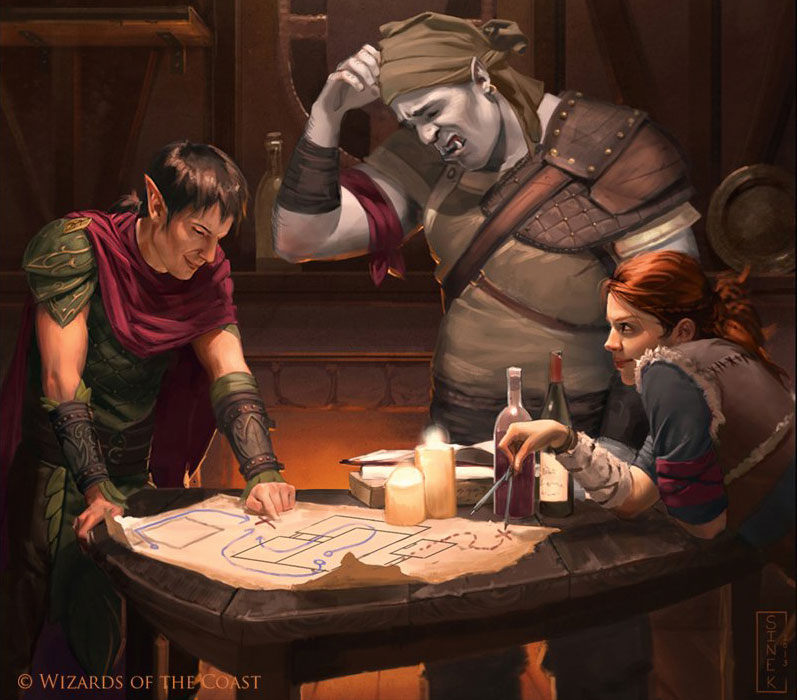
Illness came relatively out of the blue for Arizona-based concept artist and illustrator Carmen Sinek. By 2014, she’d carved out a successful career and was working on Magic: The Gathering. But then she suddenly started having seizures caused by a genetic disorder.
“It was very jarring,” she recalls. “I couldn’t drive or be at home alone, putting strain on my family. I struggled to recall words. Eventually, it got more difficult to hold multiple concepts together in my head, the way I need to when I’m drawing. My thoughts would sometimes fall apart and disappear while working, and mid-conversation, leaving me suddenly confused.”
Sinek increasingly struggled to produce acceptable work and still meet deadlines. “It was thanks to some patient art directors that I hung on as long as I did, but eventually I had to make the call,” she says. And although she considers her career on “pause” rather than “halt”, it’s been tough to get back to creating art.
“I can’t imagine a life without making art, but it’s hard to stomach the amount of time it takes to complete a painting now,” she says. “It’s only been a few months since I finally put my nose back to the grindstone, but I’m optimistic I’ll eventually be able to make art that I enjoy and am proud of again.”
Like Kurtz, she’s accentuating the positive. “I’d like to eventually return to working in some capacity, but my current goal is to focus on having fun,” she says. “It’s easy to lose passion and wonder for something when you turn it into a career, so this is an opportunity for me to rediscover that.”
Being inspired by illness
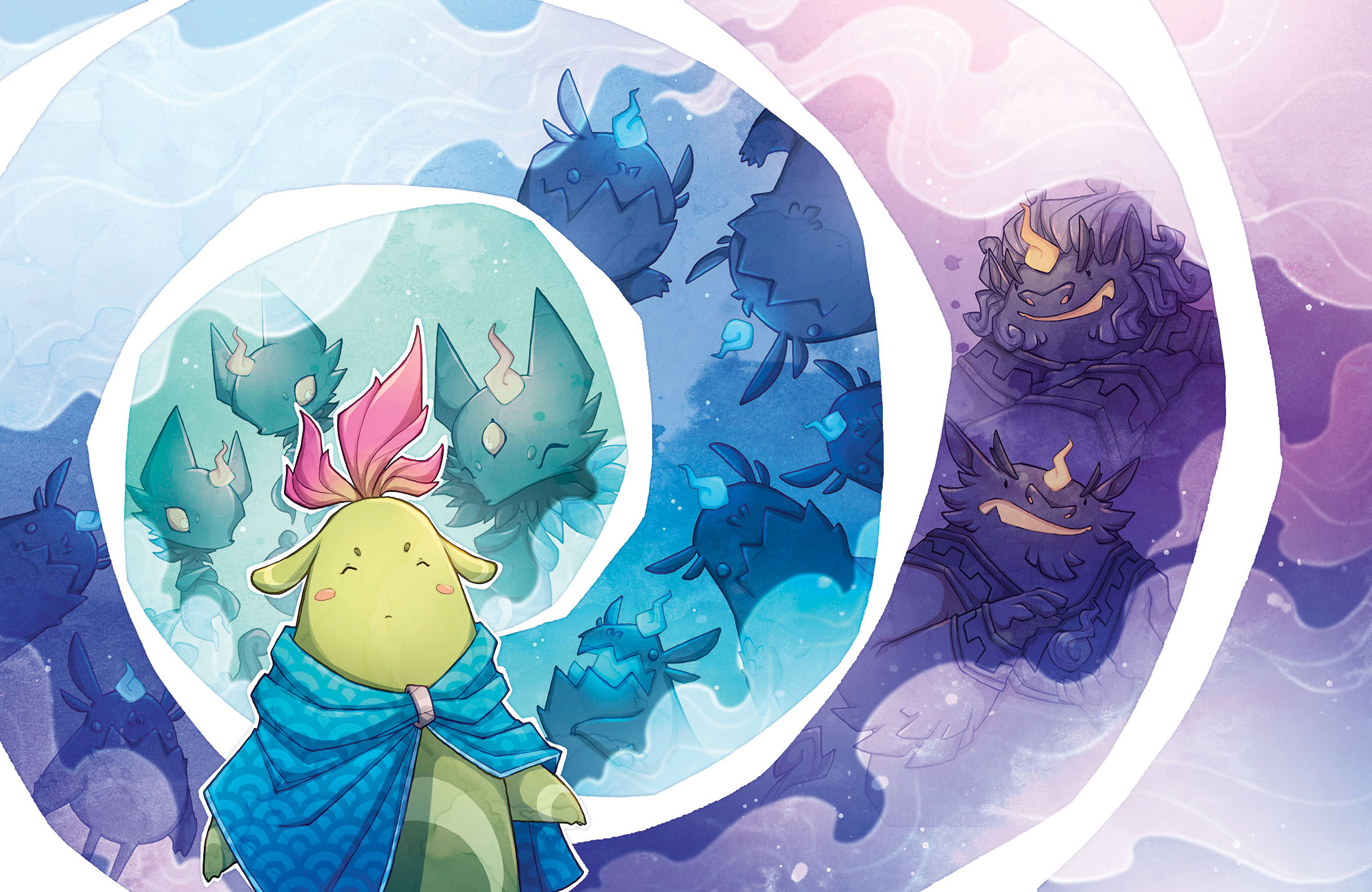
For some artists, illness itself can be the inspiration for creating art. Take
Toby Allen, a British illustrator at Bear Hug Entertainment, who suffers from anxiety. “It’s manageable on a daily basis,” he says, “but when it heightens it can lead to art block or physical symptoms such as shaky hands, which can make drawing a challenge.” To help himself, and ultimately others, he decided to draw different mental illnesses as fantasy monsters.
“The idea originated from a conversation with a friend who wondered what anxiety and bipolar would look like as creatures,” he recalls. “I ran with it and the response was very positive. That gave me the push to create monsters based on other mental illnesses, particularly ones people asked me to represent.”
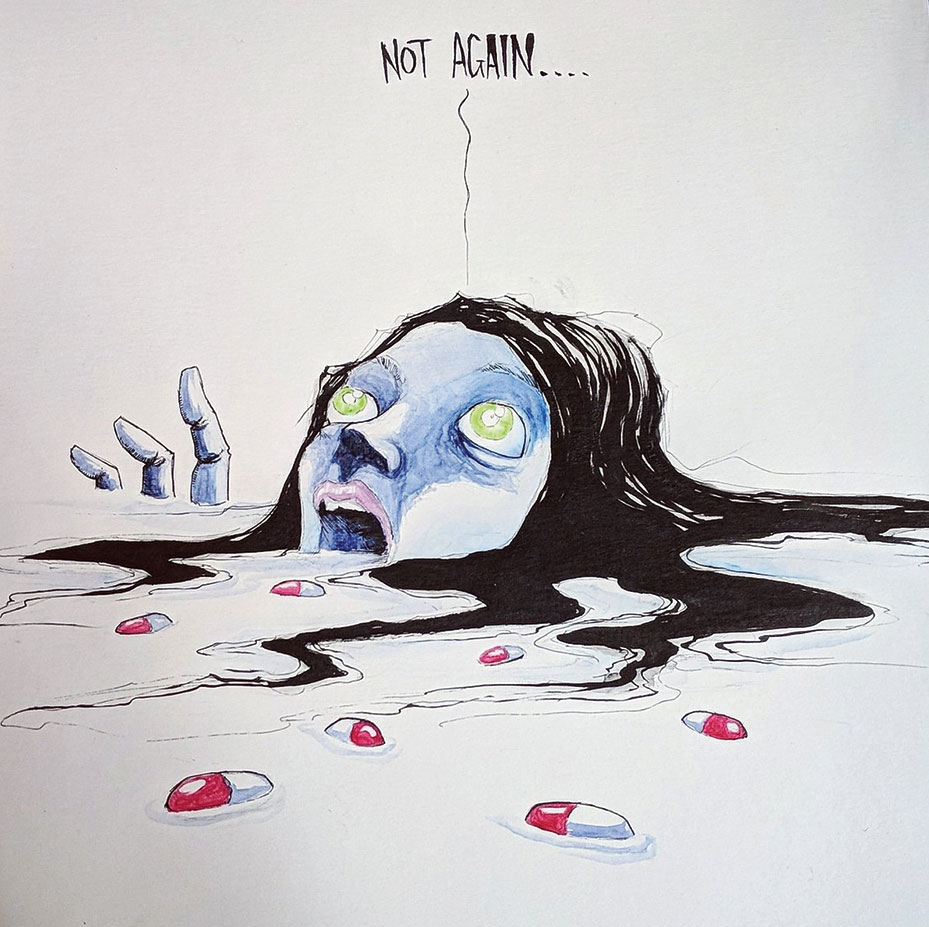
Shawn Coss, an Ohio-based artist known for his work on web comic Cyanide and Happiness, took a similar approach. Based on his own experiences with anxiety and depression, as well as his work as an emergency nurse at a mental health hospital, he launched his collection of dark art depictions of mental illnesses, It’s All In Your Head, in 2018, and has just successfully Kickstarted Volume 2. Again, it’s helped both him and others.
“I’ve been reached out to by mental health professionals who wanted to use the books in their therapy,” Shawn explains. “Over 100 practices now use my book in their sessions.” His advice to any artist suffering mental health issues is to talk. “Don’t shy away from it, or try to bury it,” he stresses. “Embrace it, understand it, and if it’s too much at times, remember you aren’t weak for seeking help. You’re stronger for reaching out.”
Indeed, talking can help with all forms of illness. “Sharing my experiences via social media has been one of the most helpful things I’ve been able to do,” says Carmen. “The support and encouragement I’ve received from the art community has gotten me through a lot of bad days, and made the good ones even better. My fear of being alienated from people I’ve come to know as friends and colleagues has been eased by the amazing people who’ve reached out to me, to make sure I know I’ll always be welcome as a part of the community.
Tips for dealing with poor health
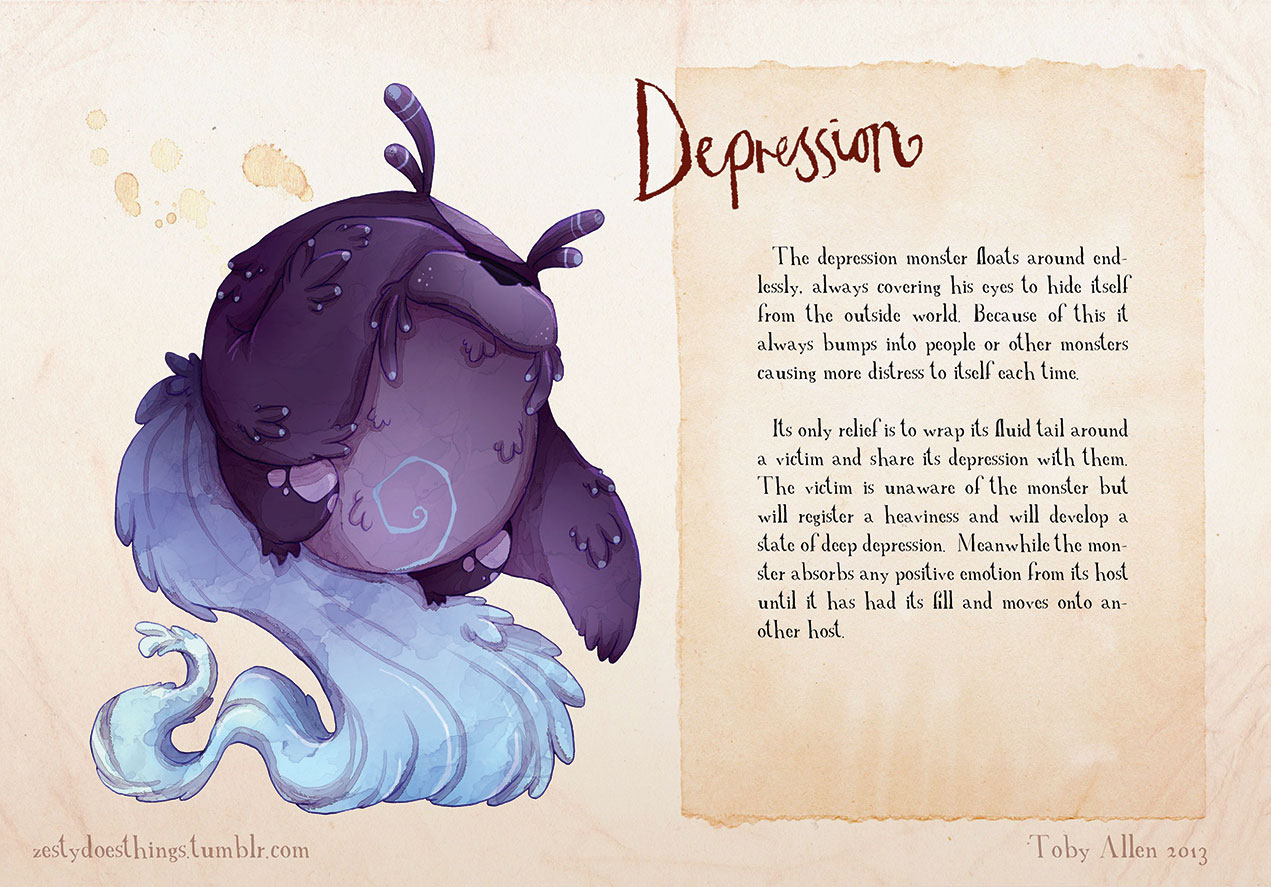
01. Prioritise self-care
Put your health above all else, even if that means stepping away from your art. “All humans need to actively engage in self-care, but for those of us with an illness, that need presents itself glaringly and the cost of ignoring it is often devastating,” says Kurtz.
02. Build in breaks
If you’re suffering from poor mental health, it’s vital to build some space into your schedule, says Allen. “Taking breaks where possible and allowing yourself time to decompress and not think about art can be beneficial,” he says. “An artistic career, especially freelance, can be a lonely thing, so gathering a support network of friends and fellow artists can counter this.”
03. Seek support
“It’s easy to get discouraged in the face of illness and that’s where the support of family and friends really shines,” says Sinek. Social media can be a positive force here, too, especially within the online artist community, which many have found to be very nurturing and supportive.
04. Be realistic
“Don’t give up until you’re ready to give up,” says Sinek. “An illness can’t be countered by sheer grit alone. So be kind to yourself if you can’t just fight your way out of it. Do what you need to do, to know that you gave it your best shot. And then forgive yourself if you can’t do more.”
05. See the broader picture
If you do have to abandon your art, either temporarily or permanently, don’t see it as the end of your world, but a new beginning. “You’re more than your art,” says Sinek. “It just take you a little while to figure out what else you’ve got in there.”
This article originally appeared in issue 186 or ImagineFX, the world's leading magazine for digital artists. Buy issue 186 or subscribe here.

Tom May is an award-winning journalist specialising in art, design, photography and technology. His latest book, The 50 Greatest Designers (Arcturus Publishing), was published this June. He's also author of Great TED Talks: Creativity (Pavilion Books). Tom was previously editor of Professional Photography magazine, associate editor at Creative Bloq, and deputy editor at net magazine.
